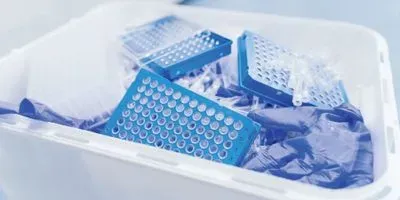It is becoming increasingly difficult to ignore our planet’s mounting plastic waste problem. In an effort to curb single-use plastic waste, several states—including California, Connecticut, Delaware, Maine, New York, Oregon, and Vermont—and countries have implemented bans on certain single-use plastic products. However, plastic waste poses an even greater challenge for laboratories as scientists discard significantly more plastics associated with their work than the average person.
In 2015, researchers at the University of Exeter published a correspondence in the journal Nature calling for laboratories to do their part in reducing plastic waste. The researchers estimated that their bioscience department generated 267 tons of plastic in a single year (2014).
Here, Rachael Relph, chief sustainability officer at My Green Lab, discusses some of the challenges and solutions regarding plastics recycling in the laboratory.
According to Relph, laboratories face several challenges when it comes to recycling. The first is knowing which items can be recycled, as municipal recycling programs are often not ready to process laboratory materials. “Laboratories need to work with their local recyclers to understand which materials and specific products can be recycled…and then be sure to educate lab personnel,” she explains.
Contamination is also a challenge, as many laboratories work with hazardous chemicals or biohazardous reagents. “Very often, organizations and recyclers would not take materials that may have come in contact with any of these reagents—and for good reasons,” says Relph. Some items may be suitable for recycling if properly cleaned, but this requires appropriate training to ensure the items can be safely handled by the recycling facility staff.
Relph also notes that space can be an issue, as laboratories must find room to accommodate various bins for different waste streams for recycling or reuse.
Despite these challenges, there are many ways laboratories can increase plastics recycling. Relph recommends scientists work with their organization to determine what can be recycled locally, based on local capabilities and policies, and then work with the recycler to identify other items that may be recycled.
Some laboratory plastics are more difficult to recycle locally, but several specialized programs have been developed to handle these items.
“Kimberly-Clark, TerraCycle, and Medline all have glove recycling programs,” notes Relph. Pipette tips also create a major waste stream in the laboratory, and “there is a company called Grenova Solutions that offers a tip washing system that allows users to reuse tips around 20 times on average,” she explains.
Ultimately, the best way to address the plastic waste problem is to practice the first of the three Rs—reduce. “Rather than trying to find a different end-of-life solution like recycling for the waste, scientists should be looking at how they can do protocols differently, whether they can use an alternative method that would generate less waste, whether they can reuse items, or whether they can switch to reusable items instead of single-use,” says Relph. She recommends conducting a waste audit to understand which products contribute most to the laboratory’s waste. Once the biggest contributors are identified, laboratories can focus on minimizing or eliminating these waste streams. “It is a good idea to engage your suppliers in this conversation and find out what products or services they may have that can help you reduce your waste in the laboratory,” she adds.
The plastic waste problem will not be eliminated overnight, but there are many actions laboratories can take to divert waste from landfills.














